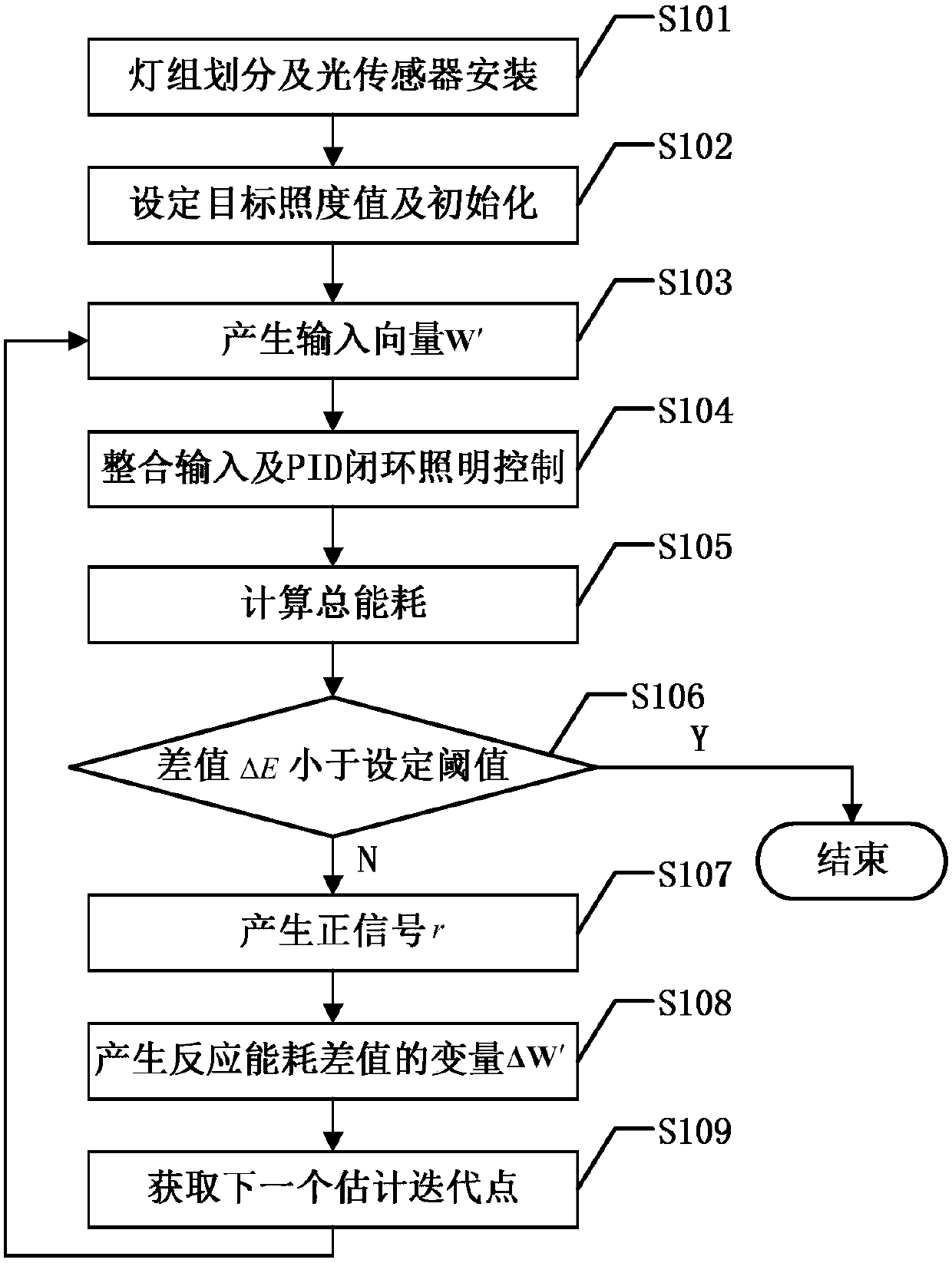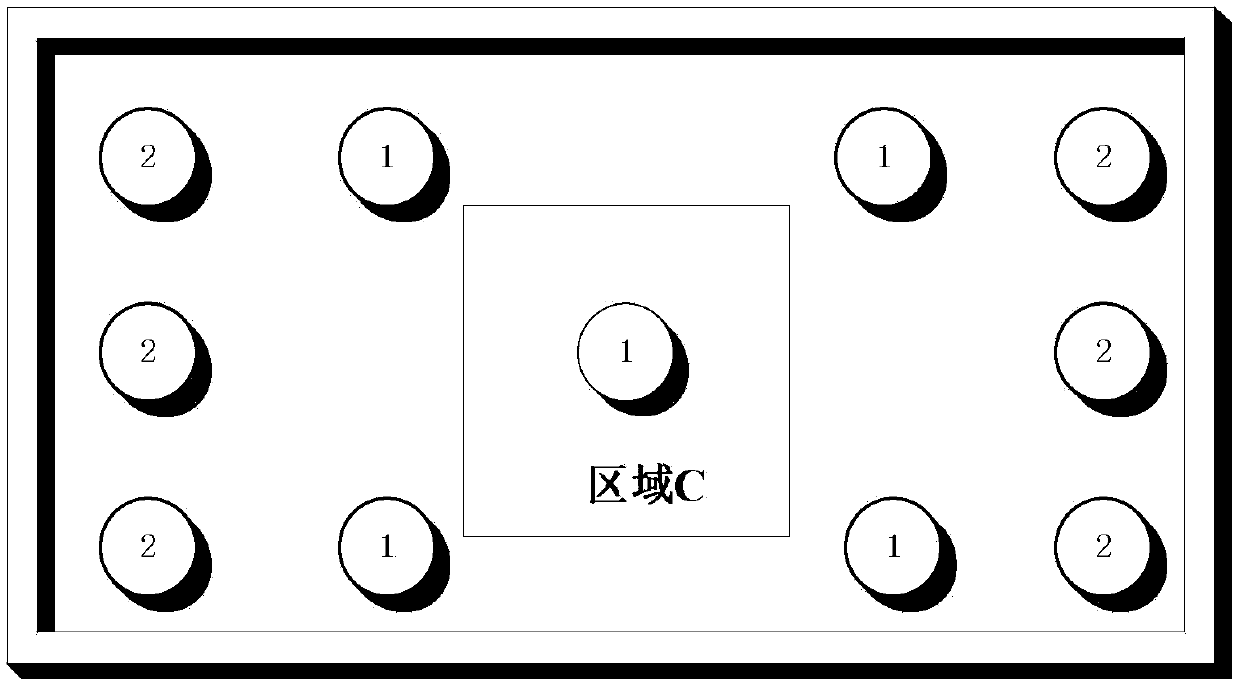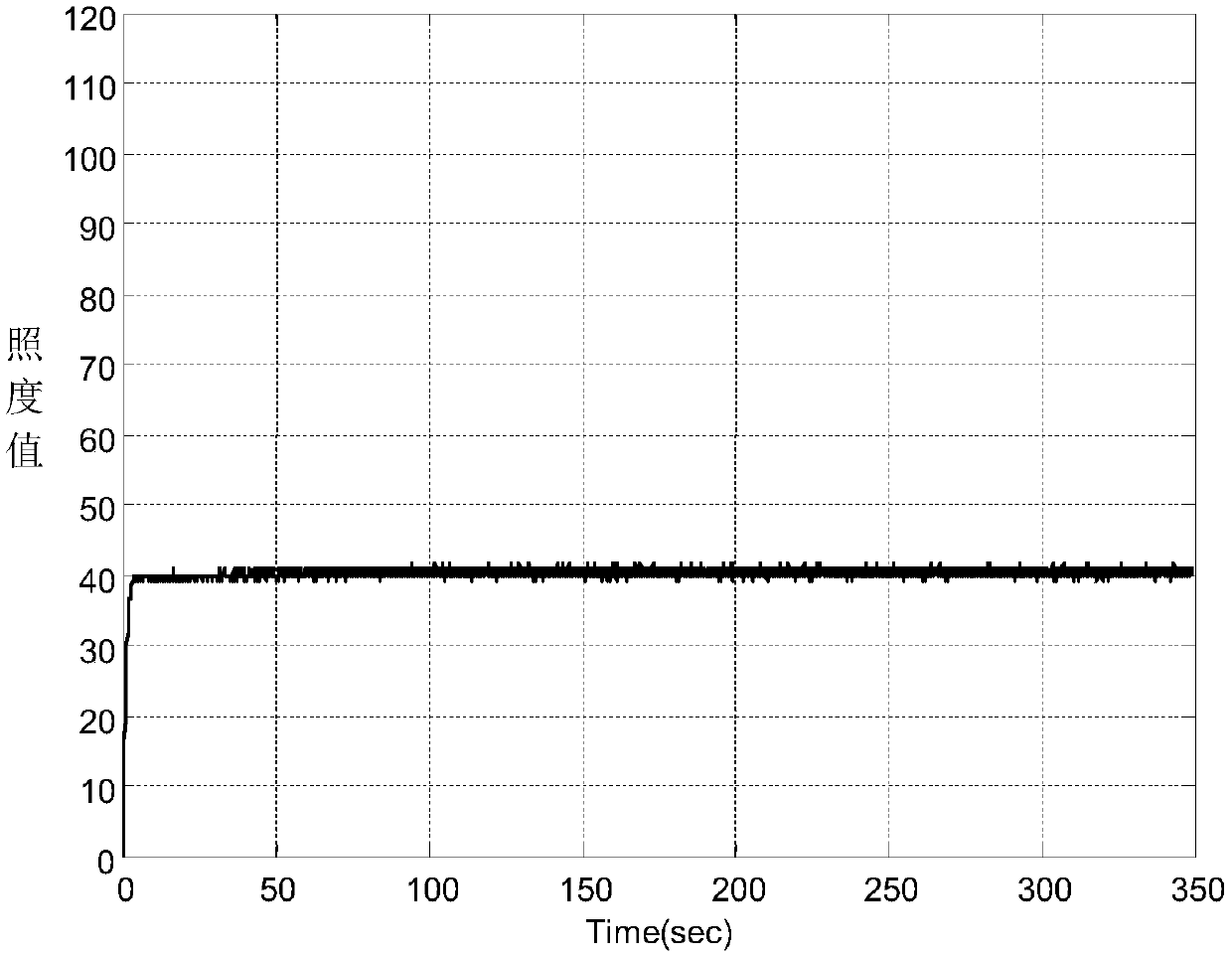Lighting Energy Saving Control Method Based on Variable Gain Newton Extremum Search Algorithm
A search algorithm and energy-saving control technology, applied in energy-saving control technology, lighting devices, light sources, etc., can solve the problem of unsatisfactory search speed and accuracy of extreme values, and achieve shortened search time, reduced jitter, and reduced jitter. degree of effect
- Summary
- Abstract
- Description
- Claims
- Application Information
AI Technical Summary
Problems solved by technology
Method used
Image
Examples
Embodiment
[0103] In order to illustrate the technical effect of the present invention, based on the intelligent lighting platform, the method described in the patent with the publication number "CN106028585A" and the name "A Double Closed-Loop Lighting Energy-saving Control Method Based on Newton's Extremum Search Algorithm" is used as a comparison method , compared with the lighting energy-saving control method based on the variable-gain Newton extremum search algorithm of the present invention.
[0104] The experiment of this embodiment mainly includes three parts. First, group all lamps and lanterns, set the illuminance value, and make the real-time illuminance value of the target area C stabilize near the set illuminance value through PID control. unchanged,
[0105] 1. Carry out the traversal experiment first, and accurately obtain the corresponding energy consumption value by traversing the percentage of each group of lamps, and find the minimum energy consumption value
[0106...
PUM
 Login to View More
Login to View More Abstract
Description
Claims
Application Information
 Login to View More
Login to View More - R&D
- Intellectual Property
- Life Sciences
- Materials
- Tech Scout
- Unparalleled Data Quality
- Higher Quality Content
- 60% Fewer Hallucinations
Browse by: Latest US Patents, China's latest patents, Technical Efficacy Thesaurus, Application Domain, Technology Topic, Popular Technical Reports.
© 2025 PatSnap. All rights reserved.Legal|Privacy policy|Modern Slavery Act Transparency Statement|Sitemap|About US| Contact US: help@patsnap.com



